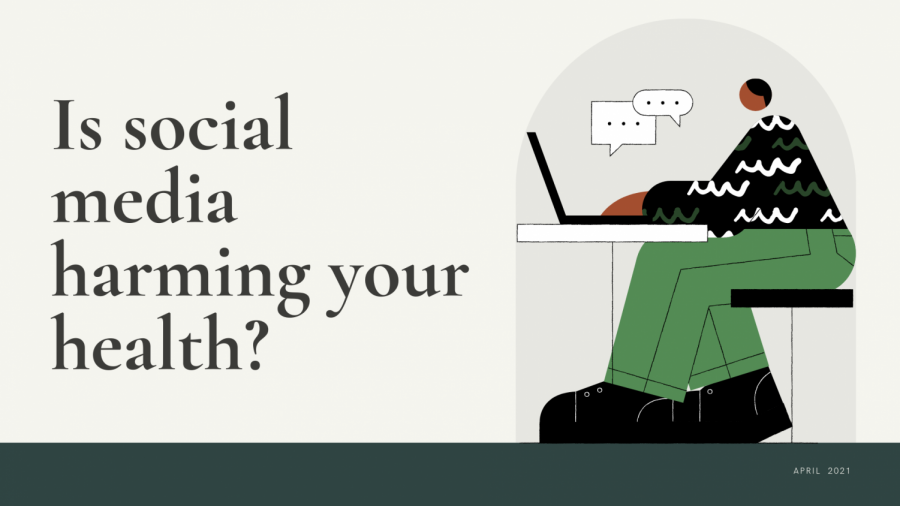Is social media harming your health?
Staff Graphic by Darian Daniels
Social media has had many impacts on me the following year.
While in quarantine, I have reached peak exhaustion. My mind often feels cluttered and disoriented. I easily forget important deadlines and struggle to work on assignments that take longer than an hour. I am overwhelmed to the point where I feel like I know everything and nothing at the same time. Although my senior year of high school has been difficult for me, it isn’t the reason why I feel this way. The culprit is none other than social media, and given the context of the past twelve months, it is easy to see how it’s harmful to my health.
The past year has been nothing short of overwhelming. COVID-19, the Black Lives Matter movement, and the presidential election gave me information overload. This feeling occurs when you take in so much information that it lessens the importance of it. It was so hard to keep up with police brutality cases that happened every week that I eventually felt burned out. Each death was just as important as the next one, but many were not able to gain any recognition because of the focus on other cases. The cycle of signing petitions and learning about more people who were innocently murdered was distressing. With each day, I grew more tired of discussions on whether or not my life mattered or if COVID-19 was being downplayed. Every time I left social media, I ended up feeling more stressed than I was before I opened it.
For many teenagers, there is the same feeling of exhaustion and isolation. A survey taken by The New York Times states that “almost 50 percent of teens said their mental health is much worse or somewhat worse than it was pre-pandemic.” Teenagers not being able to socialize takes a big toll on their health. With activities and events taking a temporary leave, such as student-athletes not being able to participate in their sport, many kids feel that they have wasted a year. This feeling hits seniors especially hard, giving them a sour ending to their high school years. Many celebrities and influencers also played a role in the negative impact of teenagers, making people feel as if they’re not doing enough by traveling the world despite the pandemic. Quarantine took a bigger toll on teenagers than any other population.
Although social media has negative factors, it has also contributed to a lot of positive awareness. Social media is responsible for the increase in movements created to tackle racism and has supported many self-owned businesses through quarantine. There has been an influx of great music and trends to come out as well as a great sense of support throughout every community.
However, it’s also important to note ways to avoid negative or harmful platforms on social media. Many people have created smaller, separate accounts on Instagram to control what they see from the media and what people see from them. There are ways to mute certain words and phrases from Twitter that might bring you stress. And with mental health being more emphasized in teens, there are blogs and resources to help teens find healthy alternatives to being social media daily.
With COVID-19, it’s more important than ever to keep up with your physical and mental health. Taking time off of your phone and exercising are very important in your routine. Although social media can negatively affect your health, everyone can find their own way to keep a healthy relationship with it.





